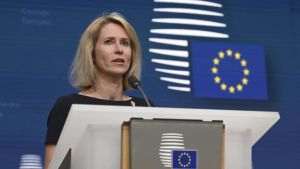
In addition to a plausible depiction of the Kingdom of God, the conceptual construction draws towards an alternative for the desirable world, rooted in a sacred document. Immersed in contemporaneity, the millennia-old document develops the desirable world corresponding to the issues of the current period. The image changes when the solvent of the era changes - an uncertain process (dependent, moreover, on the diligence of the search), but, in any case, even if only because we imagine it, it helps prevent the world from appearing chaotic. It can be a kind of constant revolution of the dictionary.
In this sense, there is a probability that the proposal for the concept of the Kingdom of God coincides with the Gospel of Jesus. In the following, I did not take the expression "Kingdom of God" metaphorically (as thousands of texts dedicated to this subject do), but assumed it to refer to a certain system of social organization, and therefore, apparently, I attribute to Jesus Christ - who declares that the purpose for which he came is to proclaim it - not only a role as a spiritual leader but also intentions entailing political consequences.
The hypothesis is common to that from which the "liberation theology" launched by Gustavo Gutierrez (5) in the 1960s-70s originates: "It is an open theology - in protest against the degradation of human dignity, in the struggle against the widespread robbery of the vast majority of humanity, in liberating love and in building a new, just and fraternal society - at the gift of the Kingdom of God." (6) In the essay "Liberation Theology," Reverend William Cosgrave shows: "Following Marx's assertion that 'philosophers have hitherto only interpreted the world in various ways; the point is to change it,' and realizing that social analysis alone cannot go beyond interpretation, liberation activists and theologians take another step and move on to action for social justice and liberation" (page 510); but, a page earlier, he acknowledged that the vision of the Kingdom of God is "general and even vague" (7).
At this point, I intervene with this work - yes, it is helpful if the Church understands to take an active role in achieving the desirable world, but it is irrational to start changing the world according to "a general and even vague vision."
Although it is indisputable that liberation from poverty, oppression, and injustice is imperative, changing the world without a defined and clear vision does not bring about change but only revolt - it is simple logic, without invoking the experience of communism.
Therefore, as promised in the "Introduction," this essay seeks in the Bible ways of functionally rebalancing society, corresponding to a higher purpose of life, which seem to be promised by the concept of the "Kingdom of God."
The name "Kingdom of God" suggests a functional system. When preaching the Gospel (8), Jesus implies the idea of structuring the Commandments, so we gather all biblical elements to build it:
- The Commandments are divine;
- Reason processes so that the Commandments are understood (without which they are given in vain);
- The idea of structuring is divinely validated.
All that remains is to try structuring. Inevitably, in the processes of derivation and interpretation that are inherent in such a construction, reason and logic are involved, which are not certain to be inherent in the matter to be investigated - a literature considered sacred by almost a third of humanity - and that, put to work, would not tarnish it. An evaluation of the relationships between Holy Scriptures, rationality, and logic is opportune before the essay progresses, using them.
(To be continued)
Notes
(5) Gustavo Gutierrez (born 1928) is a Peruvian philosopher, Catholic theologian and Dominican priest, considered the founder of liberation theology originating in Latin America.
In "A Theology of Liberation" he writes:
"The kingdom is gratuity, it is sharing. It is justice and it is living as brothers. It is already present and active in history, even if it is not yet realized."
(6) Gustavo Gutierrez/"A Theology of Liberation"/p.12/Translation of: "Teologia de la liberation". Originally published: Maryknoll, N.Y.: Orbis, 1973
(7) "Ultimate goal ~ a new humanity
Another basic element in the theological method of liberation theology is its vision of the future, its final or ultimate goal. This is what he calls a new humanity, the "Utopia" toward which we are striving, when all oppression and injustice will have been eliminated and justice and full liberation achieved. This will be the reign of God's perfect love and justice, the finally and fully come Kingdom of God. This view, if general and even vague, is the inspiration for the whole struggle for justice and liberation that is going on now and for the critical reflection on it that we call liberation theology."
("Liberation Theology/William Cosgrave/"The Furrow"/Vol. 37, No. 8, Aug., 1986/p.509)
(8) - Mark:1: "14. After John was arrested, Jesus came to Galilee, preaching the gospel of the kingdom of God."
- "Bunavestire" is the Romanian translation of the Greek word εὐαγγέλιον - having the Romanian correspondent "Evanghelie"; the mission of Jesus, declared by himself (according to the Gospel according to Luke) is the Gospel of the Kingdom of God, i.e. other than the canonical gospels and which is not present in the New Testament.
















































